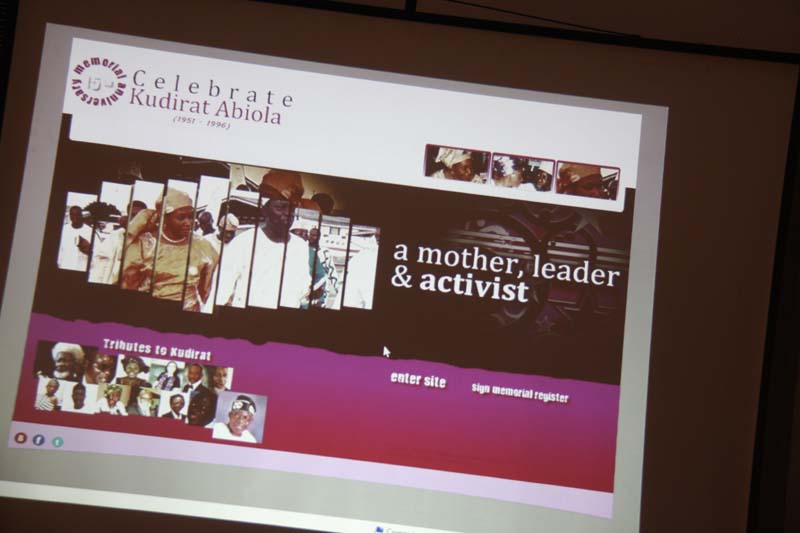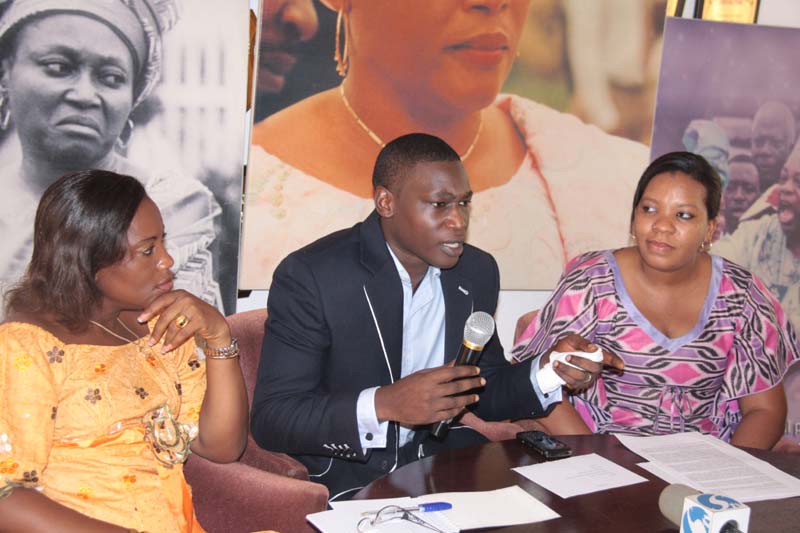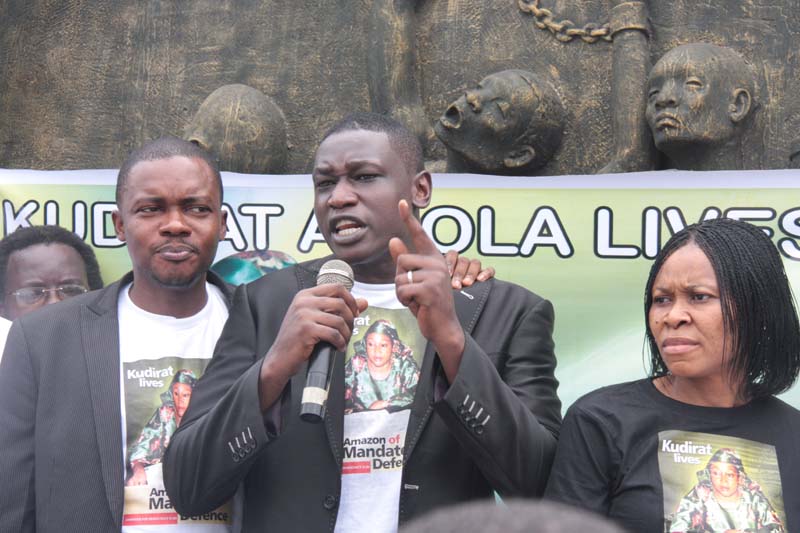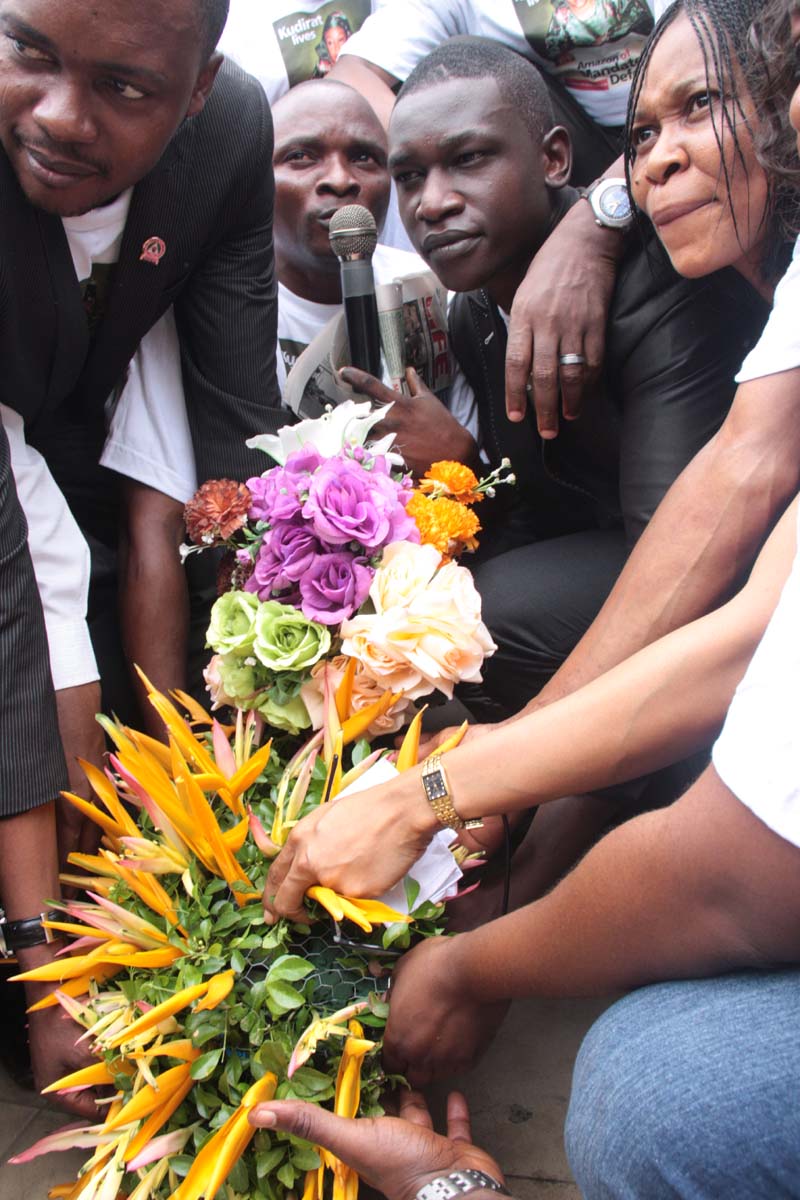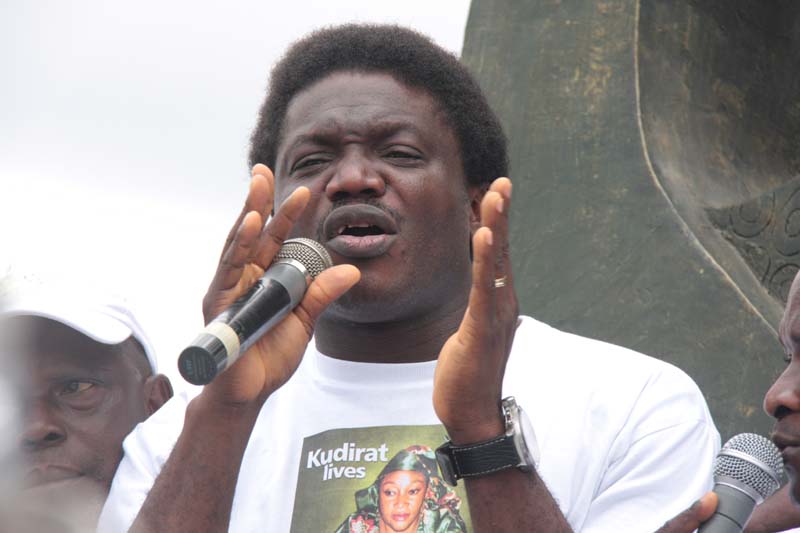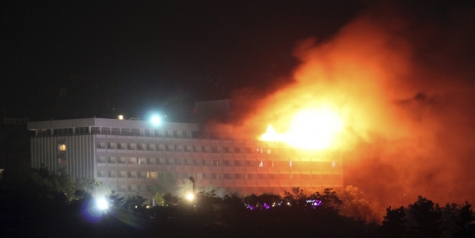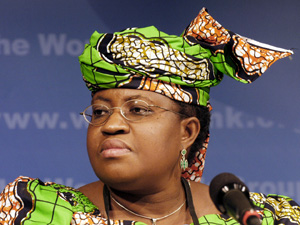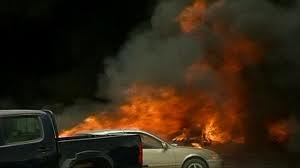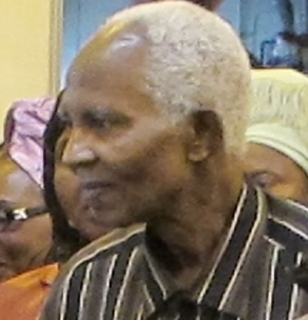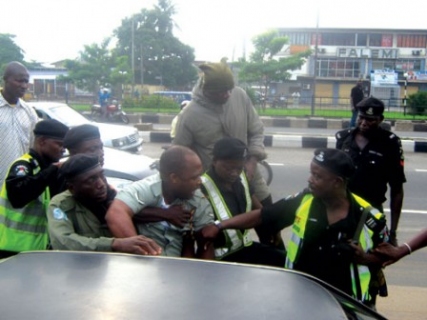The recent Abuja bombing of the Louis Edet Police Headquarters is something not surprising as the emergence of Boko Haram and other domestic terrorist organizations has become evident for the last seven years. Nigeria is recording its first incidence of suicide terrorism since the insurgence of domestic terrorism in the most populous black nation.
According to the report, the assailants gained access to the police Headquarters by disguising as part of the back-up convoy of one of the Inspectors General of Police. Immediately, the bomb suspected to be about 500lbs of TNT explosive went off killing eight people and destroying several vehicles parked on the police premises. The effect of the explosion would have been worse and could have resulted in greater casualties if not for the fact that the car used for the operation was not in close proximity to the main building. The terrorist target was successful not as a result “failure of intelligence” per se but due to the “failure of imagination”. We all failed to imagine that the terrorist could have been so audacious to the extent or targeting the “lion den”. The June 16, 2011 terrorist act is a “symbolic” attack just like October 1, 2010 terror campaign in Abuja and other bomb blasts that have occurred in Nigeria military barracks. It is a clear message that there is trouble on the home front. Once again, the modus operandi of the suicide attack shows that the 21st century terrorist organizations are more organized, discipline, committed, and sophisticated with high levels of intelligence gathering capability.
Of course, terrorism is no more a new phenomenon in Nigeria but the worrisome part of it is the new dimension of suicide terrorism. There is no doubt in the fact that there is real trouble at the home front for President Goodluck Jonathan in terms of building capability to confront and defeat the fast growing terrorist groups in Nigeria. Nevertheless, it is not yet time to trade blame or shift the responsibility on the law enforcement agencies, rather the incidents call for full commitment on the part of the Government and its agents. Defending the homeland from terrorist organizations is vital to the state, and hence the challenges to that interest must be met with full force. President Goodluck Jonathan and his security chiefs must understand that our adversaries are unconventional, and so our approach for defeating them must be unconventional as well. We cannot defeat them solely by force; we must use a blend of political, informational, military, economic, and socio-cultural approaches, in combination with foreign governments’ assistance, security forces, and populations.
Understanding Suicide Terrorism
What could have tempted a normal human being to risk and sacrifice his life for a cause by embarking on a death mission? The justification of rationale behind this irrational behavior as exemplified in many actions of suicide terrorists has formed a major concern among the political scientists and researchers on terrorism across the world. According to Marthar Crenshaw, “the purpose of terrorism is to intimidate popular watching audience by harming only a few’.
Terrorism is meant to hurt, not to destroy. Terrorism is preeminently political and symbolic”. Crenshaw 2000, p. 406. However, the purpose of suicide terrorism has gone beyond ordinary hurting, it has moved from demonstrative to a destructive terrorism like what we witnessed at the event of the September 11, 2001 suicide attack masterminded by Al-Qaida on the soil of the United States of America. Scott Atran defined suicide terrorism as a “targeted use of self destructing humans against non combatant – typically civilian population to effect political change”. Atran 2003.
The purpose of suicide terrorism is to coerce the targeted opponent in order to get partial or full concession of the demands. Its primary use is typically an instrument of psychological warfare intended to affect a larger public audience. Terrorist choose the suicide option when realizing that fighting a conventional war will surely lead to their defeat, therefore, suicide terrorism is the weapon of the weak against a strong opponent. The history of suicide terrorism is ancient and dates as far back as the 1st century, when the Jewish sect called Zealots (siccari) adopted the suicide option in Roman occupied Judea. Also, a radical offshoot of Muslim Sha'a Ismaili (Islamic Order of Assassin - “hashish eater”) adopted same suicide method against the Christian crusaders attempting to conquer the present day Syria and Iran between A.D 1090 and 1272.
Terrorist organizations like Hamas, Palestine Islamic Jihad, Chenchen rebels, Hesbollah and Tamil Tigers have successfully adopted the suicide tactics and prefer suicide terrorism as a strategic weapon against their opponents. According to Hoffman, even though, Al-Qaeda is known to be the first terrorist organization to have successfully conducted suicide attacks on land, sea and in the air, the Liberation Tigers of Tamil Eelam (LTTE) remain the leader among the organizations that use suicide terrorism since LTTE adopted the suicide tactic in 1987. It should be noted that all these terrorist organizations adopted suicide terrorism because it is not expensive, lethally efficient, easier to execute and has a high degree of success. Of course, the mode of attack is attractive to the perpetrators because suicide terrorism guarantees media coverage and sends fear to the target audience. “Suicide terrorism is a high cost strategy, one that would only make strategic sense for a group when high interest is at stake and even then as the last resort” Pape 2003. With the adoption of suicide terrorism by Boko Haram, Nigeria should be vigilant because such an attack may occur in places of worship, police checkpoints, military and police barracks, academic campuses, high profile functions, mass transportation system and inside government offices.
Boko Haram (brief profile and modus operandi)
The name Boko Haram connotes fears and terror in the mind of every household in Nigeria, particularly, the people living in the North East of Nigeria. The group was founded in the year 2002 by Ustaz Mohammed Yusuf with anti-west education ideology. My personal encounter with Yusuf as an undercover reporter in the year 2006 gave me more idea of Yusuf’s philosophy. The Boko Haram goes beyond what people think. He spoke to me about injustice, corruption, collapse of moral values and all other social vices of which he wanted me to help send to Saharareporters.com for publication. He blamed everything on the influences of western education. Yusuf was killed in the year 2009 under a very controversial circumstance. Since the execution of Yusuf in the year 2009, the organization has adopted the leaderless style for a cell group leadership. It means any member of the cell group is capable of taking decision in line with the philosophy of the organization without necessarily waiting for an instructional command from higher authority. This method of cell group leadership makes it extremely difficult for law enforcement agencies to tame and grab the leadership of the group.
I have been profiling Boko Haram since 2007; the modus operandi of the organization is similar to all known terrorist groups in the world. The trademark of the organization is blood, tears and sorrow with both covert and overt violent attack against Police officers, churches and high profile government officials. Their weapons are; machete, "daga", locally made bow arrow and guns. The use of bombs was introduced in December 2010 while suicide terrorism is the latest method adopted by the group as a new strategic weapon of attack.
The organization is funded through mandatory daily contributions from members. There is no doubt the fact that the organization also gets support from politicians in Nigeria. Even though, one is yet to establish any direct link between the leadership of Boko Haram and Al-Qaeda movement, however, the recent indication has confirmed the fact that the Boko Haram sect is getting international training and financial support from the international terrorist groups.
A very Serious Threat
With the recent occurrence, terrorism is now taking a dangerous dimension with the introduction of suicide terrorism. It is a very serious threat to the existence of Nigeria as a nation of which President Jonathan must act very quickly to tame the “monster”.
In what could have looked like the first suicide attempt in Nigeria was an unusual incident at the Margaret Ekpo Airport, Calabar on Wednesday, March 31, 2010 in which a lone driver beats all the airport security and rammed into an Abuja-bound Arik aircraft.
The second incidence was the June 16, 2011 Louis Edet House attack of Police National Headquarters. These are serious threats to our National Security and government must use all means available to remove all sources of insecurity at all levels. Of course, threats always outnumber the resources available to negate those threats to safety. The gap between the threats and resources to nullify those threats is a risk. Therefore, the Government must be determined and ready to take the necessary risk in order to build enough capability to confront terrorism.
Capability
Home grown violent extremism is not the only threat our nation will face in the near future. We must also prepare to tackle both domestic and regional terrorist organizations.
The lead agencies in charge of our security in Nigeria were primarily organized, trained, educated, and equipped for conventional crime fighting, and these capabilities remained essential to deter and fight conventional crimes. The senior leadership of law enforcement agencies is yet to grab exactly how to handle issue of terrorism because they have not been trained to handle terrorism issue. Therefore, the federal government must ensure that our law enforcement agencies need to re-balance conventional capabilities and the capacity of our police to conduct long-duration counterterrorism operations. We must train, equip, and foster the development of civil society and of course, the effective governance is essential.
Most important of all, the law enforcement agencies need to create or improve career paths, incentives, and advancement opportunities for security personnel with critical counterterrorism-related skills and knowledge. If we do not create new demands that force the Service personnel management systems to transform, we cannot hope to identify, access, educate, train, develop, utilize, and retain adequate numbers of the people we need to wage a protracted war against terrorism.
The way forward
The recent signing of the anti-terrorism bill into law as a legal instrument to arrest and prosecute the offenders is a welcome development. However, the President must exercise his power at this point in time. In order to exercise power, the state must be capable of carrying out threats. Doing this requires possessing the instruments of power. In traditional terms, these instruments are divided into three categories: Diplomatic (or political), economic, and military power.
The approach towards fighting terrorism is the semi –military aspect of security. The significant aspects of terrorism and its suppression are also political and law enforcement concerns and for which military responses are ineffective.
Therefore, President Goodluck Jonathan should make this as a priority by designing strong counterterrorism policies that supersede the mass killings and extra-judicial murders committed by our macho police and military officers in the past.
This is not a time for complacency; the President must be ready to act on all necessary intelligence reports related to terrorism. In most cases, the policy makers often make such mistakes by failing to act on intelligence. It is also acknowledged that this happens in some instances because the “customer” does not understand the intelligence.
Therefore, it is the responsibility of the analyst and the officer of the NSA to ensure that the President not only receives the real time intelligence but fully understands it.
In conclusion, out law enforcement agencies and the intelligence communities as constituted in Nigeria Joint Intelligence Board (JIB) must be ready to share information. It is common that most intelligence organizations place more emphasis on secrecy than on effectiveness. This in most cases leads to poor intelligence. Failure to work as a team has been one of the principal reasons for the intelligence failure. The absence of crime is the splendor of efficient security. Therefore, the goals in countering terrorism are:
· Stop terrorists from committing acts of violence by capturing them, disrupting their cells, or killing them
· Keep the most dangerous weapons out of terrorists' hands
· Recognize that it is impossible to prevent all attacks
· Protect those facilities in Nigeria that, if struck, would cause catastrophic damage
· Prevent radicalization by helping to deal with grievances that are spawning terrorists
Oludare Ogunlana is an Intelligence Analyst, and President, Global Alternative Agenda, (GAA)
www.global-agenda.net
Updates to follow

